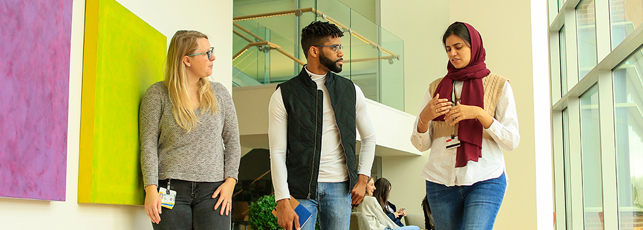Welcome to myHub!
Empower your Education and Career
myHub brings together eight critical areas, including learner life/wellness, writing services, fellowships and grants, career services, internships, mentorship support, graduate student and postdoctoral groups, alumni connections.

Learner Life/Wellness
1:1 and group assistance with personal wellness goals, wellbeing concerns, help with interpersonal and communication difficulties with colleagues, peers, and faculty, access to supportive services, and trainee group advising/community building.

Writing Services
1:1 and group assistance with scientific writing fundamentals, publication, fellowship, and grant writing.

Career Services
1:1 and group assistance with CV/resume/cover letter writing, goal setting, career exploration, networking, internships, job search strategy, and interviewing.
Upcoming Events
Connect with Us on Social

